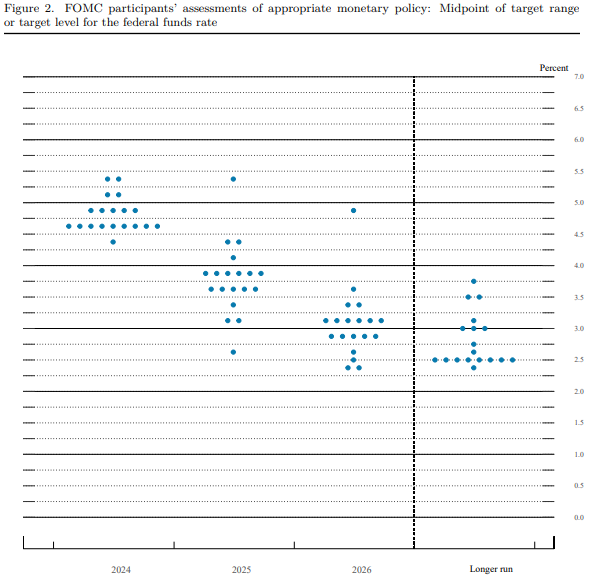Stricter UK Visa Applications: Impact On Certain Nationalities

Table of Contents
Keywords: UK visa applications, stricter visa rules, UK immigration, visa application process, visa requirements, nationality impact, visa changes, UK visa policy, student visas, work visas, visa rejection rates.
The UK government has implemented stricter measures for visa applications, significantly altering the process and creating challenges for applicants of various nationalities. These changes affect application timelines, required documentation, and overall acceptance rates, making securing a UK visa more complex than before. This article delves into the specific impacts these stricter rules have on certain nationalities seeking UK visas.
Increased Scrutiny for Specific Nationalities
The tightening of UK visa application processes has resulted in increased scrutiny and, consequently, higher rejection rates for specific nationalities. This heightened scrutiny is often linked to perceived immigration risks or concerns about potential fraud.
Higher Rejection Rates for Certain Countries
Several countries have experienced a noticeable surge in visa rejection rates. While precise figures aren't always publicly available due to data protection, anecdotal evidence and reports from immigration lawyers suggest a significant increase.
- Examples of Countries: While specific data is often confidential, reports indicate higher rejection rates for applicants from some countries in South Asia and Africa.
- Percentage Increase in Rejections: Accurate percentages are difficult to obtain, but industry experts suggest increases ranging from 10% to 30% in certain cases.
- Data Sources: Information is gathered from immigration lawyers, applicant testimonials, and news reports, although official government data is often limited for privacy reasons.
These increased rejection rates are often attributed to stricter enforcement of existing rules and the introduction of new criteria. For instance, applicants may face increased scrutiny regarding their financial stability, ties to their home country, and the genuine purpose of their visit. Changes in the points-based system for certain visa categories also contribute to higher rejection rates.
Lengthier Processing Times
Beyond higher rejection rates, applicants from certain nationalities are experiencing significantly longer processing times for their UK visa applications. This delay can have serious consequences for individuals whose plans are contingent on timely visa approval.
- Average Processing Times Before and After: Before the stricter rules, processing times averaged around 8-12 weeks for many visa types. Now, processing times can stretch to 16 weeks or even longer, leading to significant delays.
- Anecdotal Evidence of Applicant Experiences: Many applicants report delays that impact job offers, study commencements, and family reunifications. Stories of missed opportunities due to extended processing times are frequently shared online and amongst immigration support groups.
- Impact of Longer Processing Times: Delays can lead to financial losses, missed opportunities, and significant emotional stress for applicants. This delay also highlights the need for early application and proactive planning.
Changes in Required Documentation and Evidence
The stricter UK visa application process demands considerably more robust documentation and evidence to support an application. This increase in required evidence impacts applicants across various nationalities.
Greater Emphasis on Financial Proof
Applicants now face heightened scrutiny regarding their financial situation. Demonstrating sufficient funds to support themselves during their stay in the UK is now paramount.
- Specific Examples of Required Documents: Applicants are expected to provide detailed bank statements for the past six months, payslips, proof of employment, sponsorship letters (where applicable), and evidence of sufficient funds to cover tuition fees (for student visas).
- Challenges Faced by Applicants: Meeting these stringent financial requirements can be challenging, especially for individuals from countries with less developed financial systems or those with less readily accessible banking documentation.
Strengthened Proof of Genuine Purpose of Visit
The UK government is increasingly focused on ensuring that applicants have a genuine purpose for visiting the UK. This translates into more stringent requirements for demonstrating strong ties to their home country and a clear intention to return after their visit.
- Examples of Changes in Requirements: Applicants might be required to provide more detailed travel itineraries, evidence of property ownership, strong family ties, or employment commitments in their home country. The burden of proof to show genuine intent has significantly increased.
- Challenges Faced by Applicants: Providing sufficient evidence of genuine intent can be especially difficult for those with limited resources or who lack easily verifiable documentation.
Impact on Specific Visa Categories
The stricter visa rules have profoundly affected various visa categories, including student and work visas.
Student Visas
The changes to the UK student visa application process have placed greater emphasis on academic qualifications, financial sponsorship, and English language proficiency.
- Changes in the Points-Based System: The points-based system for student visas has been adjusted to prioritize applicants with stronger academic backgrounds and greater financial security.
- Specific Examples of New Requirements: Applicants may now need to demonstrate higher English language proficiency levels, provide detailed course outlines, and submit additional financial documentation.
Work Visas
The stricter rules have made it more challenging to obtain a UK work visa. Requirements for job offers, salary thresholds, and employer sponsorship have become considerably more stringent.
- Examples of Changes in Sponsorship Requirements: Sponsors (employers) now face more rigorous checks and must demonstrate a genuine need for the sponsored worker.
- Minimum Salary Thresholds: The minimum salary requirements for many skilled worker visas have been increased, making it harder for lower-paid individuals to qualify.
- Job Skill Requirements: The UK government is prioritizing skilled workers, resulting in increased scrutiny of job roles and required skills.
Conclusion
Stricter UK visa applications have disproportionately impacted certain nationalities, leading to higher rejection rates, longer processing times, and more stringent documentation requirements. These changes affect various visa categories, including student and work visas, making it more challenging for many individuals to obtain a UK visa. The increased emphasis on financial proof and genuine purpose of visit adds another layer of complexity to the application process.
Call to Action: Navigating the stricter UK visa application process can be challenging. For expert guidance and assistance with your UK visa application, [link to relevant service/information]. Ensure your application meets all the updated requirements to maximize your chances of success with your UK visa application.

Featured Posts
-
 U S Federal Reserve Maintains Rates Inflation Unemployment Weigh Heavily
May 10, 2025
U S Federal Reserve Maintains Rates Inflation Unemployment Weigh Heavily
May 10, 2025 -
 Analyzing Brobbeys Strength An Ajax Advantage In The Europa League
May 10, 2025
Analyzing Brobbeys Strength An Ajax Advantage In The Europa League
May 10, 2025 -
 Landlord Price Gouging In The Wake Of La Fires A Selling Sunset Stars Perspective
May 10, 2025
Landlord Price Gouging In The Wake Of La Fires A Selling Sunset Stars Perspective
May 10, 2025 -
 Edmonton Oilers Overtime Victory Levels Playoff Series Against Kings
May 10, 2025
Edmonton Oilers Overtime Victory Levels Playoff Series Against Kings
May 10, 2025 -
 Dijon Accident Mortel Sur Chantier Un Jeune Ouvrier Tue
May 10, 2025
Dijon Accident Mortel Sur Chantier Un Jeune Ouvrier Tue
May 10, 2025
